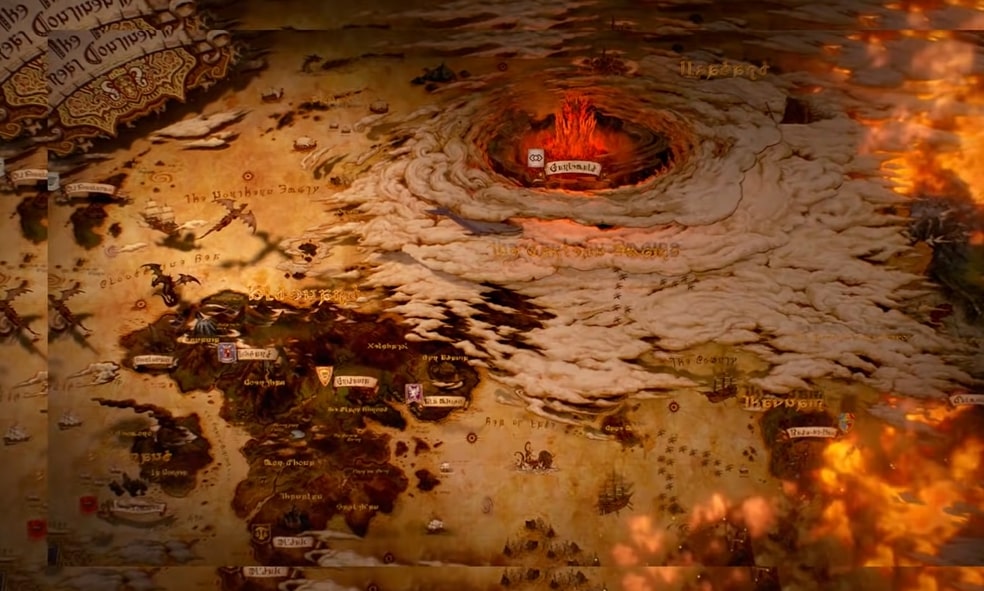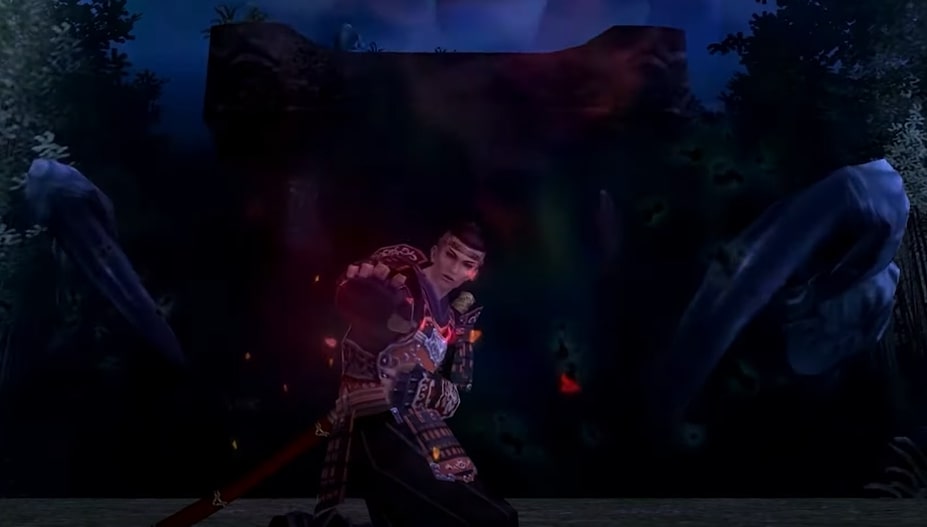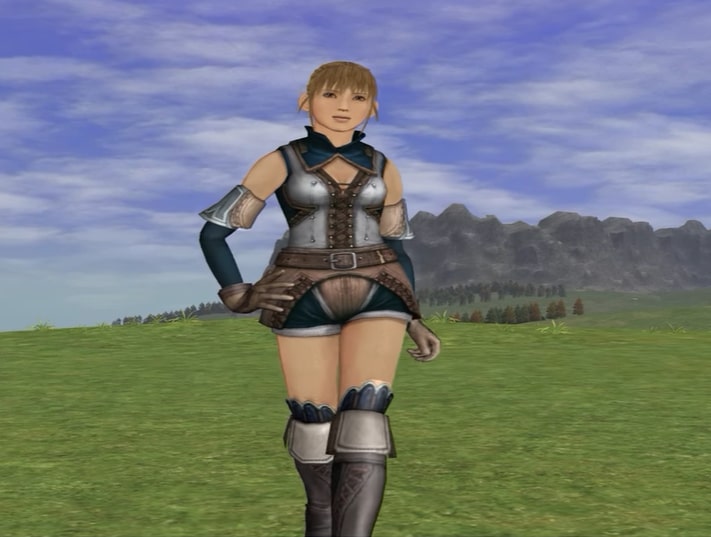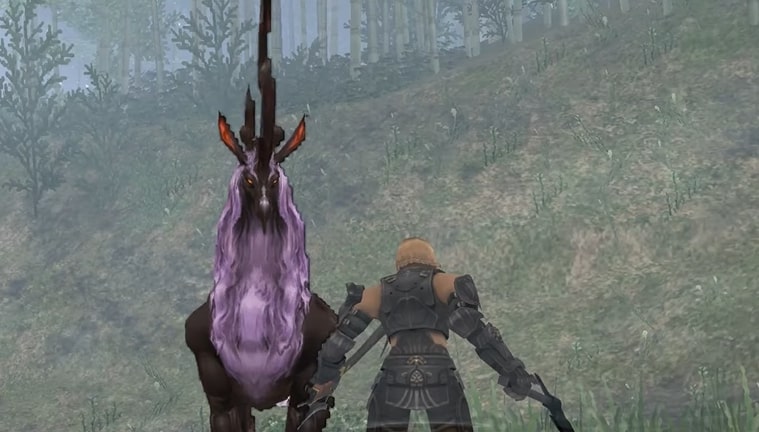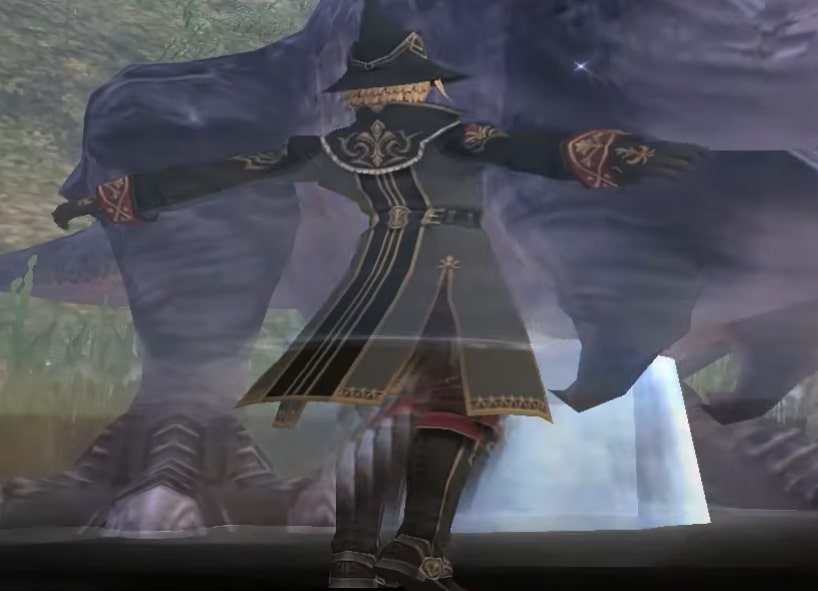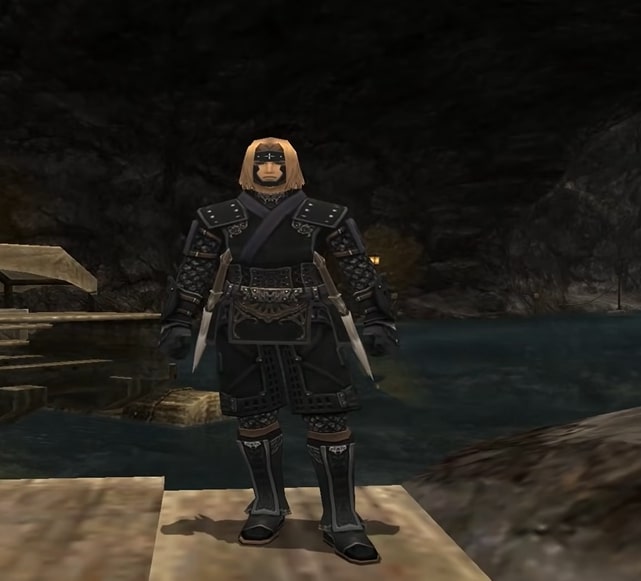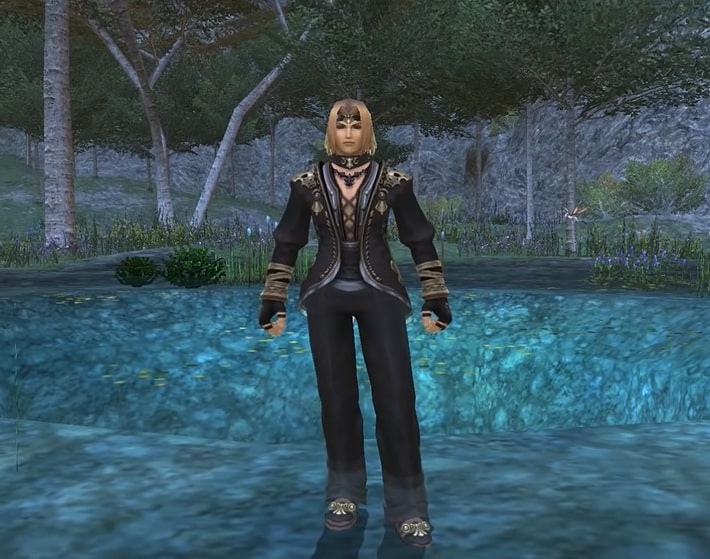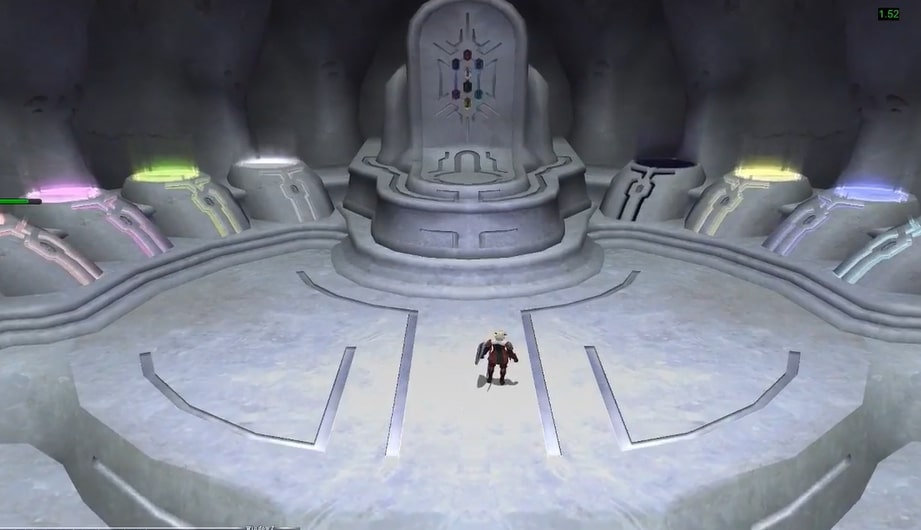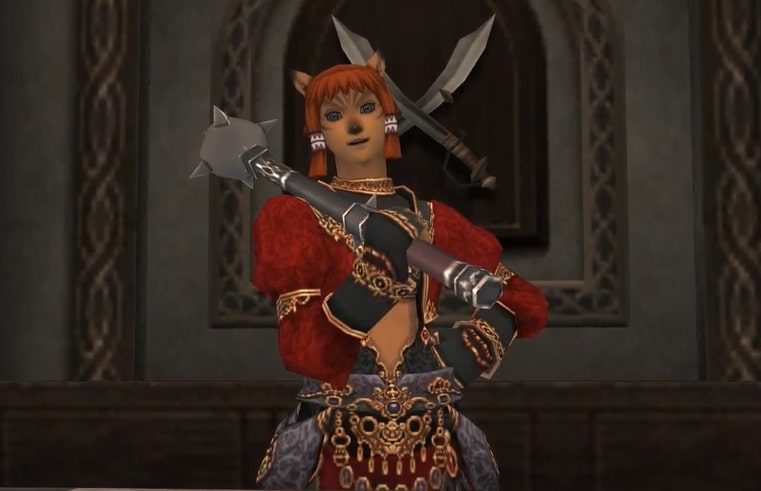- Jenova Guide - May 8, 2022
- Safer Sephiroth Guide - May 8, 2022
- Kefka Guide - April 27, 2022
In 2000, Square Enix announced several games for release on the PS2. These announcements included Vagrant Story, Final Fantasy IX, and Final Fantasy X for the PS2.
However, there was one game announcement that rocked the entire world. This game was Final Fantasy XI, set to release in the summer of 2001.
All of the three Final Fantasy games serve a particular purpose. Final Fantasy IX would be a homage to the old Final Fantasy games. Final Fantasy X would be a modern rendition of Final Fantasy. Lastly, Final Fantasy XI is an experimental game that aims to thread higher grounds as the first MMORPG experience for Final Fantasy.
The History of Final Fantasy XI
Development of Final Fantasy XI began in 1999, before the announcement at the Square Millenium Celebration. Had the event been delayed, then it wouldn’t be possible for Square Enix to announce the game by then.
Hironobu Sakaguchi envisioned a game that brings people together. Drawn into MMORPGs such as Lineage and Everquest, Hironobu Sakaguchi’s goal was to create and learn about Japanese MMORPGs. This lack of reference was his main driving force since no one developed a Japanese MMORPG beforehand. Square Enix has a vast portfolio of successful RPG games, but they have no real experience in MMORPGs.
Armed with the passion of Hironobu Sakaguchi, Square Enix gathered their courage and was ready to develop their first-ever MMORPG game. Instead of copy-pasting elements from other RPGs, Sakaguchi and his producers saw Final Fantasy XI as the opportunity to unleash their creativity while keeping the core values of what a Final Fantasy game meant.
Based on Sakaguchi’s vision, they should create an MMORPG that values team play and cooperation. They want to make a game that unites culture. With the addition of an Ethernet network and additional hard drive in the PS2, this vision became much more realistic. Sakaguchi wanted to have a translation feature in the game; however, considering the time and the technology they had back then, it would take too much time and expense to implement such technology for an online game.
They opted for a simple phrase system that can help create simple sentences to help a player tell another player about their intentions. This system would further help the core value they always dreamed of in an MMORPG, unifying cultures.
Final Fantasy XI: The Plot
Vana’diel, the world of Final Fantasy XI, features diverse climates and ethereal realms. Regions in Vana’diel, known as zones, also offer cities, towns, and dungeons. There are six city-states in Vana’diel:
- The Republic of Bastok
- Kingdom of San d’Oria
- The Federation of Windurst
- The Grand Duchy of Jeuno
- The Empire of Aht Urhgan
- Sacred City of Adoulin
These areas can be accessed using the Final Fantasy fabled Chocobos, airships, and even spells.
Vana’diel was a playground made for the Gods and their respective children. A sentient crystal spawned these Gods and children. The children wish to be a part of the Gods; hence they built a bridge to paradise. Angered by this foolish act, the crystal cast their cities to the bottom of the sea. Altana, one of the Gods in Vana’diel, was deeply saddened as she wept five tears which became the birth of five Races. Meanwhile, Promathia, the God of Twilight, delivered a curse to these five FF races as He saw that this was pettiness from Altana.
The curse is eternal conflict among the five races, aiming to bring out the chaos deep within them. Promathia then gave birth to the Beastmen. Promathia condemned the Beastmen into eternal war with the people of Vana’diel so none of the children could even think of creating a path towards paradise.
After 20 years from the Crystal War, the Final Fantasy character enters the story. The player now has to deal with the repercussions of the war.
Final Fantasy XI Gameplay
Final Fantasy XI’s initial gameplay is a party-based MMORPG that heavily punishes players who want to play solo. By putting in mechanics that penalizes people who want to play solo, Final Fantasy XI coerced players to play in teams and form alliances with one another.
These mechanics involved experience loss and the possibility of levelling down when the player dies in the field. Also, another mechanic that they implemented was having hard-to-solo questlines. On top of the experience lost, Square Enix forced alliances to be the critical element in surviving in Final Fantasy XI.
Further emphasizing team play, Square Enix developed the Job’s system for players to have a specific role in their respective parties.
The initial roles presented by Square Enix were:
- Warrior
- Monk
- Thief
- Black Mage
- Red Mage
- White Mage
Besides these jobs, Final Fantasy XI also has five races commonly referred to as Enlightened Races. These races are:
- Elvaan
- Hume
- Galka
- Mithra
- Tarutaru
Final Fantasy XI Characters
As this is an MMORPG, there are no available main characters. Instead, you create your character and venture forth on your journey to save the world. The custom character can be of any race with any job of your liking. Let’s talk about the different playable races in Final Fantasy XI.
Elvaan
Home to the Kingdom of San d’Oria, Elvaan are proud warriors with unwavering pride and rocksteady faith in their beliefs. The Elvaan race has high strength and mind characteristics, with a low mana pool and intelligence drawback. Elvaan is known as the sin of arrogance.
Hume
Humes originate from the city of Bastok and are the most common race seen in the world of Vana’diel. They possess high intelligence and are highly proficient in multiple areas. Hume is known as the sin of apathy and is the equivalent of humans in Final Fantasy XI.
Galka
Mighty warriors living as cheap underclass labourers, the Galka is a male-only race with the highest HP and vitality out of all the classes. War destroyed their city 600 years ago. The Galka are known for their curse of rage.
Mithra
Living with the race of Tarutaru in Windurst, the Mithra are fierce hunters that possess high dexterity and agility. They are, however, burdened by their lower HP and charisma. Mithra is fairly known as the race cursed with envy.
Tarutaru
Highly skilled magic users living alongside the Mithra, the Tarutaru race looks like children; however, their size and looks do not reflect their age.
They are the most potent mages out of all the races because they have the highest MP and intelligence, but they’re considered glass-cannons courtesy of their low HP and strength. The Gods cursed the Tarutaru with cowardice.
Final Fantasy XI Basic Job System
With the playable characters out of the way, let’s talk about the job system and what races best suit a specific job.
Warrior
Warriors offer a great variety in terms of offence and defence. They synergize well with axes that provide a high damage cap for this job. With skills such as aggressor, warcry, berserk and double attack, the warrior proves to be one of the best sub-jobs for significantly increasing physical damage. At the same time, the skills called defender and provoke make them viable for minimal tanking duties.
The best class for this job would be the Galka since they offer high strength and high HP, making them a perfect candidate as warriors.
Monk
Monks usually excel in fist-fights, and they equip various knuckles as their weapons. They do terrific damage against low defence monsters, and they obliterate skeletons. Monks also have access to speed, strength, and accuracy buffs that account for their deficit in their natural statistics.
The best classes for this job would be the Galka and the Elvaan since they both offer high hp and high strength, respectively. Don’t use the Tarutaru race with this job as they ultimately hinder the job’s potential due to their low HP and strength.
Thief
Thieves are known for their huge instant damage due to their abilities, such as sneak and trick attacks. Their regular attacks are weaker than others, but their critical attacks make up for their lost DPS (damage per second). They can also help control enmity (boss monster targeting) among party members, so they make sure that the boss keeps attacking the party’s tank.
It seems that any class is viable for the thief job since a thief’s role is to divert the attention of enemies to the tank.
White Mage
The well-regarded white mage is the healing class of Final Fantasy XI. While they offer a few debuffs like slow and spells that deal damage, such as holy, their primary role is to provide heals and remove status ailments for the party.
Any of the five races can be viable for this role. Elvaan has the highest mind statistics, resulting in more HP regen per cure cast. The Tarutaru offers a high MP pool meaning they can cast multiple healing spells throughout the fight.
The Hume and Mithra are balanced, providing the pros and cons of Elvaan and Tarutaru, while the Galka can have the role of tank/healer due to their high hp and vitality.
Black Mage
Black mages are the opposite of white mages; they offer many destructive magic spells that damage the Final Fantasy enemies significantly. They also have access to a few debuff spells.
The best race for this class would be the Tarutaru due to their natural high MP statistic, making them the most suitable for casting multiple high-level spells.
Red Mage
Red Mages offer one of the most versatile experiences as they can cast white and black magic with the ability to wield melee weapons such as swords and daggers. They are also masters of applying debuffs to enemies, their prominent role in the party.
Like the white mage, since they can become secondary healers and debuff-ers of the party, any of the five races can be viable for the job for the same reason that they are feasible as a white mage.
Final Fantasy XI Advanced Jobs
Paladin
Paladins are considered the main tanks because of the increase in vitality and defence once a character takes this advancement. Other jobs or roles usually die in specific boss attacks while a Paladin tanks the hit.
Paladins also learn spells that aim to direct the enmity of bosses towards them.
Dark Knight
The heavy-hitting physical DPS, the dark knight, is one of the best classes of Final Fantasy XI. They can inflict enemies with absorb spells. With the amount of damage they deal, they quickly generate enmity.
This mechanic balances the dark knight from attacking the boss enemy head-on without strategizing properly.
Beastmaster
The beastmaster is a subpar advancement job at best. Beastmasters offer no beneficial abilities that make them stand out against other advancements. Other than charm that can help them escape during fights.
However, beastmasters can be profitable since they can solo with barely any gear at all.
Bard
Bard is a support advancement job mainly picked for increasing the party’s overall performance during battles. Bards give consistent attribute bonuses and remove buffs from bosses, and they have a high tendency to be picked in parties than any other support job.
Ranger
As the name suggests, rangers are ranged-DPS that offers severe damage while staying safe from enemy AOE attacks. If you will be using this job, the only advice is to get equipment with relatively high accuracy.
As a fair warning, their ammo is costly and also, since they are heavy damage dealers, they build up a lot of enmity quickly.
Samurai
The instant 100% tp class, samurai, the main role of samurai is to create skill chains as the great katana is easy to skill chain with. The samurai can offer significant damage, whether soloing or at a party.
However, being adequately equipped is a must for samurai jobs to dish out massive damage, so keep that in mind when you’re going for this character, as this can cost you a lot of money.
Ninja
Initially, Square Enix intended the ninja class to be a damage-dealer, but players soon realized the capability of this class to tank enemies. Ninjas are usually run through parties because they can sustain themselves throughout the fight, requiring minimal healing.
This demand is because of their high evade statistics and skills that can enfeeble enemies.
Dragoon
Dragoons are a damage-dealing class with a piercing damage attribute on their primary weapon, which is rare in Final Fantasy XI. They can also summon a wyvern which adds DPS. Also, the wyvern can use white magic to heal the dragoon.
The dragoon can also perform the Super Jump, which lessens the enmity of a dragoon, making it an excellent ability to use to reset enmity.
Summoner
Summoners have the ability to summon either an Avatar or an Elemental. Summoners are very flexible in their party role as they can either heal the party, debuff the enemy on top of doing constant damage.
As long as the caster has MP, they can summon as many Avatars as possible. So basically, you can create your army of Avatars!
Blue Mage
Blue mage is like the upgraded version of red mage. Often referred to as the better jack-of-all-trades, the blue mage turns the flexibility of the red mage to another level.
Blue mages have a lot of positive effects on the party, although this job seems to have the highest learning curve of all other jobs.
Corsair
Corsair is a luck-based class in Final Fantasy XI. They are heavily reliant on rolling the dice to grant the best ability buffs available in the game. They can also debuff enemy creatures and put adverse status effects on them, such as sleep.
If you’re willing to gamble and put everything on the line during a raid, then corsair is your go-to class.
Puppet Master
Puppet masters are similar to summoners, the only difference being that a puppet master’s automaton uses a ten-minute timer. In this duration, if a monster knocks out an automaton, the puppet master has to wait for the timer to be ready before they can use the automaton again.
To offset this, automaton’s are strong and can take on various roles, allowing the puppet master to take on a support role instead.
Dancer
Dancers are great alternative support healers for the team. Instead of expending MP, dancers use TP to cast heals. Dancers can replenish their tp by hitting a monster with regular attacks and if they are subsequently hit by monsters as well.
This class does not severely damage monsters; hence, it is not viable for end-game content.
Scholar
Scholar is a support job that offers the versatility of being a healer and an offensive magic caster. Their ability called storm spells can simulate weather that can grant bonuses for party members depending on their elemental attacks.
Being a scholar allows you to use Stratagems, enabling you to enhance spells. This job is heavily reliant on a support job to be utilized to its fullest potential.
Geomancer
Geomancer is one of the best debuff-er classes since monsters cannot resist their debuffs. They have exclusive buffs and debuffs. Geomancers can also dish out some meaty damage while supporting the party.
To compensate for this vast utility, geomancers are squishy and can quickly die during fights.
Rune Fencer
Another upgraded version of the red mage, the rune fencer, is a better swordsman and magic hybrid class. The job boasts great magic defences to all elements making the rune fencer powerful against different elemental magic damages.
They also utilize a system called harbored runes, in which the harbored rune increases their elemental defense based on what element the harbored rune is.
Final Fantasy XI Expansions
Even in 2021, Final Fantasy XI is still rocking a solid player base; hence Square Enix started rolling out expansions as early as 2003. Currently, there are five expansions as of 2021.
Rise of Zilart
Rise of Zilart is the first expansion of Final Fantasy XI offering new content to players of the game. The expansion aims to increase the rank to Rank 10 and offers three new jobs.
- Samurai
- Ninja
- Dragoon
Chains of Promathia
In 2004, Square Enix announced the second expansion for Final Fantasy XI, Chains of Promathia. It offers a new storyline. The Chains of Promathia is the only expansion pack that does not provide a new advancement job. Instead, it focuses on a more story-driven questline, areas and regions to explore, and new enemy types.
Treasures of Aht Urhgan
The third expansion pack, Treasures of Aht Urhgan, offers fresh new content for the world of Final Fantasy XI. It boasts new equipment, enemies, areas, missions and even three new jobs!
- Puppetmaster
- Corsair
- Blue Mage
Wings of the Goddess
Wings of the Goddess is the fourth expansion pack released for Final Fantasy XI, and Square Enix released this expansion in 2007. It boasts new regions, new monsters as well as two new jobs.
- Dancer
- Scholar
Seekers of Adoulin
The latest expansion pack released in 2013 is the Seekers of Adoulin. This expansion pack celebrates the tenth anniversary of Final Fantasy XI since it launched in 2003. It offers new jobs, missions, quests, modes and even the introduction of Mog Gardens, where players can live an authentic RPG experience. Here are the latest jobs offered on this expansion.
- Geomancer
- Rune Fencer
Frequently Asked Questions
Question: Can You Still Play Final Fantasy XI?
Answer: The answer is yes; the servers are still alive and kicking up until now. It does look a bit dated, but it still offers a fun RPG experience for those looking for their first-ever MMORPG.
Question: Does Final Fantasy XI Have a Monthly Subscription Fee?
Answer: Like its successor, Final Fantasy XIV, Final Fantasy XI has a monthly subscription fee of $12.95. While this may turn off players who want a free MMORPG experience, this is a good business move for Square Enix since they can still keep the servers up and running for nearly 20 years now.
Question: Is Final Fantasy XI Hard?
Answer: Final Fantasy XI is initially a brutal solo MMORPG; however, the penalties for soloing have decreased to have more accessibility for newer players. It still is a reasonably challenging game at later stages, but solo players will now be able to breeze through the game, unlike before.
In Conclusion
In this Final Fantasy XI game overview, we’ve seen that this game is one of the best games that revolutionized the MMORPG industry. Without this foundation, Final Fantasy XIV wouldn’t be where it is right now.
Given the technical limitation during the development, Square Enix did not let those limitations hinder their vision of an authentic MMORPG experience that values unification among players no matter what culture or race you are.
Meanwhile, if you’re up to read a few more articles regarding overviews of other Final Fantasy games, check these out!

